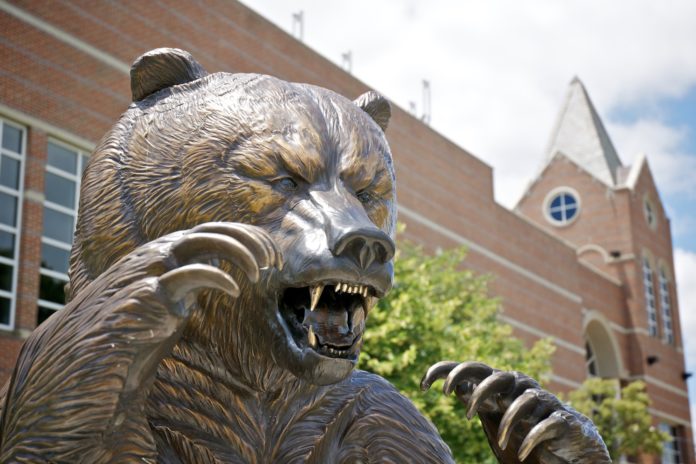Macon– Dr. Clayton R. Paul, Sam Nunn Eminent Professor of Aerospace Engineering and Professor of Electrical and Computer Engineering at Mercer University, was recently named the recipient of the 2005 Institute of Electrical and Electronic Engineers (IEEE) Electromagnetics Award.
The largest technical society in the world, IEEE gives only one such award worldwide each year. The award consists of a bronze medal, certificate and $10,000. Paul was nominated for this honor by his colleagues in the Electromagnetic Compatibility Society, a division of the IEEE. He will be formally recognized for this honor during the 2005 IEEE International Symposium on Electromagnetic Compatibility at the Navy Pier in Chicago, Ill., in August of 2005.
The IEEE Board of Directors cited Paul “for excellence in the advancement of electromagnetic theory towards solving crosstalk problems in transmission lines and cable assemblies.”
Paul has dedicated 35 years of research to modeling and solving crosstalk problems between wires, and said this award means a great deal to him.
“Being awarded the only such award given out worldwide by my premier professional organization is the largest honor I have or probably ever will receive in my professional career,” he said. “I am deeply humbled by it as a tribute to over 35 years of my research.”
An example of crosstalk problems, Paul explains, is when people are talking on the phone and they hear a faint conversation in the background. This happens because a pair of wires in the telephone line have been placed close to a pair of wires carrying the conversation. Electric and magnetic fields from one line interact with the other line and unintentionally induce a signal in the other line.
While this crosstalk problem only results in a nuisance in this example, it can be devastating when it happens with wiring on U.S. aircraft and Navy ships during combat, Paul said. Over the years, he has worked on numerous governmental contracts with the U.S. Air Force, Navy and Army to prevent crosstalk. He has also worked on a similar problem in commercial vehicles for Ford Motor Co. Since 1984, he has concentrated his research in the commercial sector, including a one-year sabbatical with IBM’s Information Products Division and serving as a consultant to IBM and Lexmark on crosstalk in high-speed digital devices, such as computers and printers.
Paul has published 11 books and six chapters in books on electrical engineering topics. He taught electrical engineering at the University of Kentucky from 1971 to 1998 and now holds the title of Emeritus Professor of Electrical Engineering at the University of Kentucky. He joined Mercer University School of Engineering in 1998 as the Sam Nunn Eminent Professor of Aerospace Engineering.
Paul stresses teaching is his first love, and he feels his research has helped him to be a better educator.
“Doing this research has made it possible to bring my experiences into the classroom to give what I am teaching a sense of credibility and relevance to the students,” he said. “My students have consistently told me that relaying stories from my research has enhanced their ability and desire to learn the material. I am firmly convinced that my research activities have significantly complemented my success as a teacher.”
Mercer University School of Engineering Dean Dr. Dayne Aldridge said Paul brings much to the Mercer engineering community.
“The School of Engineering is honored to have a professor of the stature of Dr. Paul on our faculty,” he said. “Receiving the 2005 Electromagnetics Award from the Institute of Electrical and Electronic Engineers is a clear indication of Dr. Paul’s commitment to excellence in education and research.”
In addition to this recent IEEE Electromagnetics Award, Paul has received numerous honors for his research and teaching during his career, including the IEEE Electromagnetic Compatibility Achievement Award, the Vulcan Award for Outstanding Teacher at Mercer University, the Great Teacher Award at the University of Kentucky, the Henry M. Lutes Teaching Award for Undergraduate Education at the University of Kentucky, and the Institute of Electrical and Electronics Engineers Third Millennium Medal. He has been a Fellow of the IEEE since 1987- an honor only three percent of the IEEE membership worldwide receive. He is also an Honorary Life Member of the IEEE Electromagnetic Compatibility Society.
###










